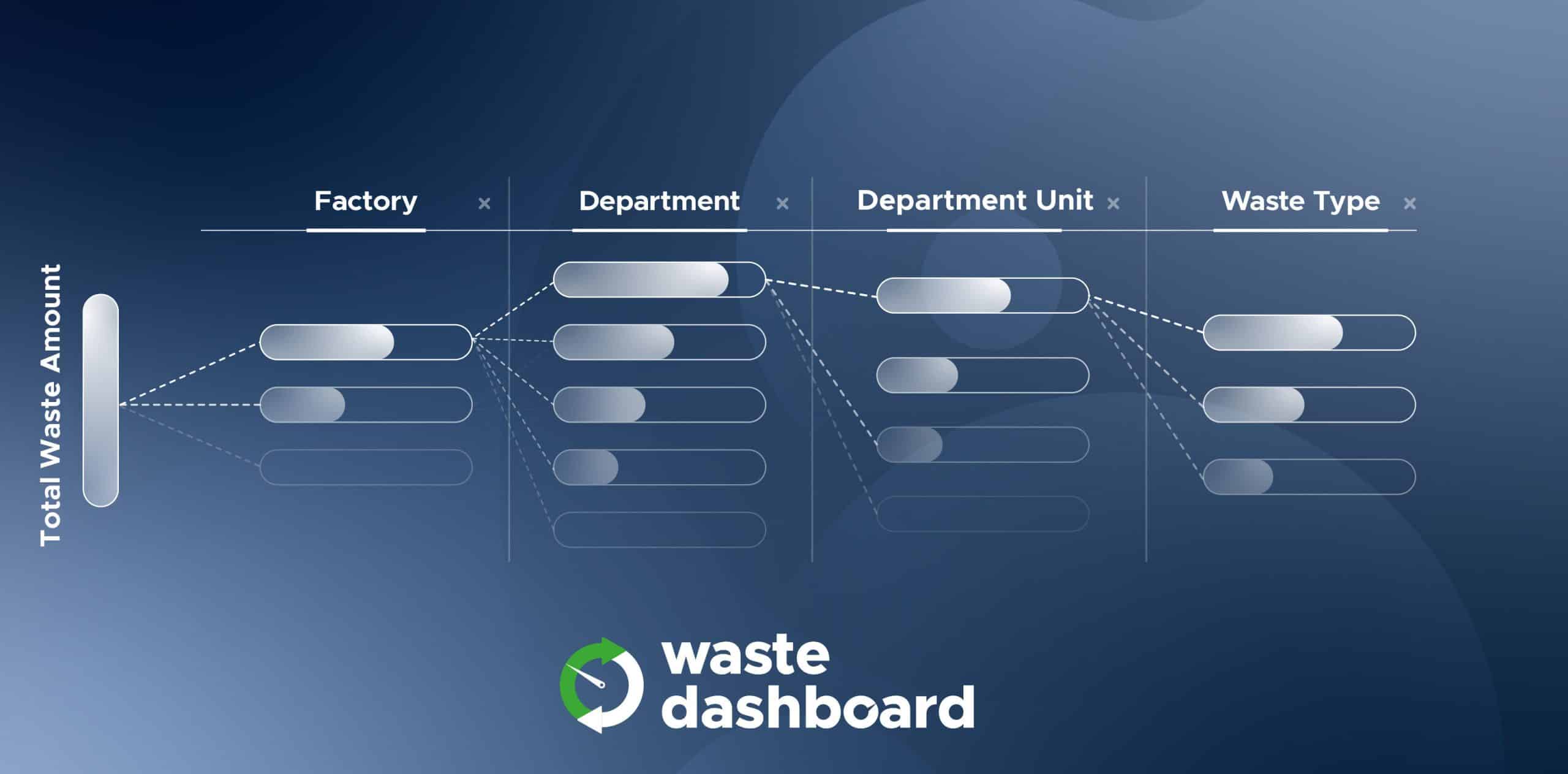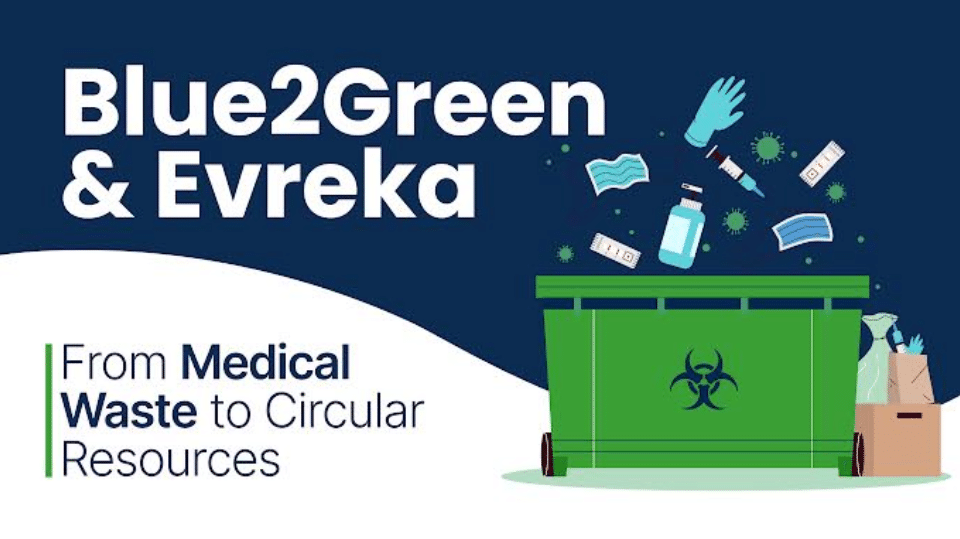Waste & material traceability solution for sustainable facilities

European healthcare facilities face increasingly complex challenges in pharmaceutical waste management. With evolving EU regulations and diverse waste streams, healthcare providers need specialized expertise to ensure compliance while optimizing costs and protecting patient safety.
Pharmaceutical waste in healthcare encompasses expired medications, unused drugs, contaminated packaging, and cytotoxic materials. Each category requires specific handling protocols, from basic non-hazardous pharmaceuticals to highly regulated controlled substances and chemotherapy drugs.
The complexity lies not just in the variety of waste types, but in the intersection of multiple regulatory frameworks that govern their management. Healthcare facilities must navigate pharmaceutical regulations, waste management directives, and occupational safety requirements simultaneously.

The EMA provides comprehensive guidance on pharmaceutical waste management across EU member states. Their guidelines emphasize environmental protection and public health safety, requiring healthcare facilities to implement robust waste classification and disposal protocols.
Key EMA requirements include proper waste categorization, secure storage protocols, and documented chain of custody procedures. Healthcare facilities must demonstrate compliance through detailed record-keeping and regular auditing processes.
The Waste Framework Directive (2008/98/EC) establishes the legal framework for waste management across the European Union. For pharmaceutical waste, this directive mandates the waste hierarchy principle: prevention, reuse, recycling, recovery, and disposal as the last resort.
Healthcare facilities must implement waste minimization strategies and demonstrate that disposal methods represent the best environmental option. This often requires detailed environmental impact assessments for pharmaceutical waste streams.
The Registration, Evaluation, Authorization and Restriction of Chemicals (REACH) regulation significantly impacts pharmaceutical waste management. Healthcare facilities must understand the chemical composition of pharmaceutical waste to ensure proper classification and disposal.
High-temperature incineration remains the gold standard for hazardous pharmaceutical waste disposal in Europe. Specialized facilities operating at temperatures exceeding 1,100°C ensure complete destruction of pharmaceutical compounds while meeting strict emission standards.
European incineration facilities must comply with the Industrial Emissions Directive, requiring continuous monitoring and reporting of emissions. Alternative treatment technologies like supercritical water oxidation and plasma arc treatment provide additional options for complete pharmaceutical destruction while minimizing environmental impact.
Modern pharmaceutical waste management relies on sophisticated digital platforms that provide real-time tracking from generation to final disposal. These systems integrate with existing hospital information systems to automate documentation and ensure regulatory compliance.
Advanced tracking technologies enable precise waste categorization, automated compliance reporting, and comprehensive audit trails. Healthcare facilities benefit from reduced administrative burden while maintaining complete regulatory compliance.
The EU generates approximately 6 million tons of medical waste annually, with medical waste contributing to approximately 5% of healthcare sector emissions. Medical waste accounts for up to 20% of a hospital’s Scope 3 emissions, making it a critical area for improvement in sustainability efforts.
However, proper management and recycling of medical waste can reduce emissions by up to 40% globally. As the healthcare sector moves toward more sustainable practices, efficient medical waste management is becoming increasingly vital for meeting 2025 sustainability targets.

Evreka‘s WasteDashboard platform represents the next generation of pharmaceutical waste management technology. Designed specifically for sites and facilities, the platform provides comprehensive tracking, automated reporting, and real-time monitoring for pharmaceutical waste streams.
Key features include automated waste classification, digital chain of custody documentation, predictive analytics for waste generation patterns, and comprehensive reporting tools that simplify regulatory compliance and audit processes.
In collaboration with Bloom ESG, Evreka has developed comprehensive guidance for healthcare facilities navigating sustainable medical waste management in the EU. Our latest eBook, “Sustainable Medical Waste Management” offers actionable insights to help healthcare organizations align with evolving standards and optimize their waste management processes.
The eBook addresses critical challenges including inefficient waste tracking, inadequate segregation of hazardous materials, and rising operational costs. It provides detailed exploration of medical waste types, management challenges, circular economy best practices, emissions reduction opportunities, and the role of digitalization in improving traceability and compliance.
Healthcare organizations can discover how digital tools can help reduce carbon emissions from waste management by up to 40%, while streamlining operations and reducing costs to meet sustainability targets.

Download our case study with Blue2Green to explore how Evreka helps Dutch hospitals improve traceability, measure their medical waste carbon footprint, reduce costs, and move towards truly sustainable healthcare practices.
Pharmaceutical waste management represents one of the most complex challenges in healthcare waste management. The intersection of multiple EU regulatory frameworks, diverse waste streams, and evolving treatment technologies requires specialized knowledge that goes beyond general waste management capabilities.
Healthcare facilities that partner with specialized pharmaceutical waste management providers benefit from reduced compliance risks, optimized disposal costs, enhanced safety protocols, and streamlined documentation processes. As EU regulations continue to evolve and new pharmaceutical compounds enter the market, the need for specialized expertise will only grow.
Ready to optimize your pharmaceutical waste management program? Discover how Evreka’s digital solutions can help you reduce costs, improve sustainability, and achieve regulatory compliance while optimizing your waste management processes.
Request a WasteDashboard Demo and see how our specialized expertise can help your healthcare facility achieve complete regulatory compliance while reducing costs and enhancing safety. Our regulatory experts will provide a personalized demonstration tailored to your specific pharmaceutical waste management challenges.